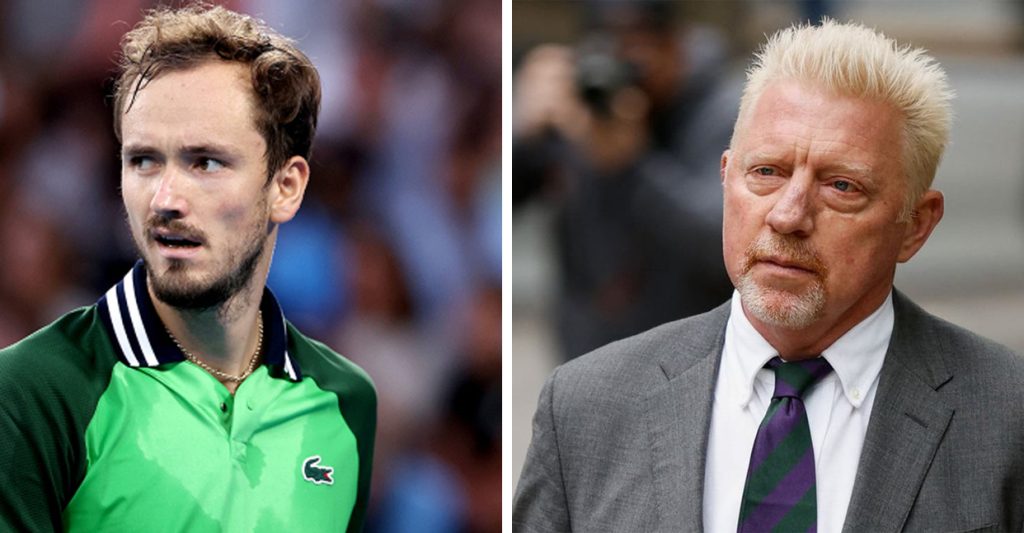Alexander Zverev produced top-notch tennis for over four hours in the Australian Open semifinal but leaked too many unforced errors against Medvedev, according to German’s former coach Boris Becker.
After his brilliant victory against Carlos Alcaraz in the US Open quarterfinal last year, Zverev looked comfortable against Russian and was just once set away to book the final berth but couldn’t cross the line.
After sealing the first two frames 7-5 and 6-3, the World No. 6 was 4-3 up and 30-0 against the Russian on serve, but couldn’t convert the chance, allowing Medvedev to hold and then eventually take the tie-breaker with a grain of luck.
Medvedev also stole the fourth set via a tiebreaker and eventually got away with a 5-7, 3-6, 7-6(4), 7-6(5), 6-3 miraculous victory to the disappointment of German. Zverev was guilty of committing 70 unforced errors with 21 coming in the decider while Medvedev’s UE-count in five sets was 41.
6-time Grand Slam champion Becker feels the statistics don’t lie and believes Medvedev was not the better player in the clash.
“I’m a bit sad and disappointed,” Becker told Eurosport.
“It started so well for Sascha Zverev, who fought his way into the match and then won the first set. He played well in the second. In the third, you thought Medvedev was tired and couldn’t go on.
“Overall, he [Zverev] perhaps made too many unforced errors in the end – the statistics don’t lie. 70 unforced errors are simply too many. Especially if you look at when that happened – at the end of the fourth and in the fifth set.
“He actually played world-class tennis over four hours, but unfortunately not in the last few minutes.
“Medvedev was not the better player, but the more solid one. He didn’t make so many unforced errors.”

Becker lauded the World No. 3, Medvedev for willing to move to Plan B as the 2022 US Open champion once again made a change of plan after struggling early on.
“He [Medvedev] reached a level that he then didn’t leave. With Sascha, there were waves of emotions between world class and unforced errors. At some point, that shows in the result,” he said.
“In the first two sets, his [Medvedev’s] playing position was too passive, too far behind the baseline. He was able to change that in the third and fourth sets and generated much more pressure as a result.
“He not only had a plan A, but also a plan B – that’s why he’s been number one before and won a Grand Slam.”